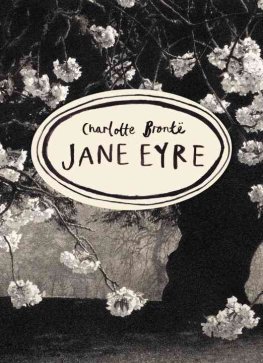This is a book I feel I should have read years and years ago.
After reading Wuthering Heights in my teens for my Advanced Higher English (A Level equivalent in Scotland) portfolio and finding it one of the most depressing books I’d ever encountered, I avoided the Brontës’ works for years. After watching the brilliant drama To Walk Invisible last year , which told the sisters’ story, I decided it was about time I got up to speed and duly added Jane Eyre and Agnes Grey to my to-read list.
I got the beautiful Vintage Classics edition from my husband at Christmas but it wasn’t until this past weekend that I finally got round to picking up Jane Eyre and found that, yes, I really should have read this years ago.
It’s certainly not a light read, but I got through it fairly quickly; so much did the story draw me in.
Like Jane Austen’s works (interestingly, the Bronte sisters considered Jane’s books ‘too cultivated’) this story is transcends genre and can’t be pigeon-holed as a mere love story. It’s a real bildungsroman; taking the reader through the growth and development of Jane’s principles and personality, which ultimately shape her destiny. I concur with the many critics who consider the book to an overtly feminist novel; the strong and independent protagonist has a clear idea of her own self-worth and refuses to compromise this for any man, even one considered her ‘superior’ in class and situation.
“I do not think, sir, you have any right to command me, merely because you are older than I, or because you have seen more of the world than I have; your claim to superiority depends on the use you have made of your time and experience.”
You tell him, Jane! She makes for a strong, well-developed and rebellious heroine that the reader really roots for.
Orphaned as an infant, Jane is raised by her widowed aunt-by-marriage, the cold-hearted Mrs Reed. It is not a loving childhood; Mrs Reed and her three spoilt children treat Jane with coldness and cruelty, eventually sending her off to Lowood Boarding school. At the school, the girls are aggressively humbled by the falsely-pious director, as well as being half starved. Jane finds solace though in the friendship of the patient, forbearing Helen Burns; who is the first person to really have influence in the shaping of Jane’s heart.
Upon her departure from Lowood as a young teacher of eighteen, Jane is hired by the enigmatical Mr Rochester to tutor his ward. They establish a repartee, which grows into regard and then into love – however, as in all great romances, there are significant obstacles in the path to happiness.

There is a dark, almost feverish intensity to the second half of the book which I found very compelling. I also particularly liked Brontë’s determination to tear the formula for a love story to shreds and toss it out of the window. The heroine is plain, quick-tempered and occasionally a snob. The hero is ugly, sometimes entitled and has a promiscuous, ungentlemanly past. The crossing of class divides was another deviation from the norm for the time as well – the masters of the house certainly did not marry servants in polite society!
Although the ensemble characters aren’t as perhaps as developed as those in, say, Pride and Prejudice or Mansfield Park, I did enjoy most of them; particularly the Rivers sisters and their austere, single-minded brother St John. The latter in particular reminded me of Enjolras from Les Miserables in his high-minded obsessive focus on the only thing he considered worthy; life as a missionary. They are even physically alike: the looks of a Greek sculpture, blond hair and startling blue eyes. I’m not sure what St John would have made of Enjolras’s radical, Jacobin politics though!
While Jane Eyre hasn’t burrowed quite as deeply into my heart as Jane Austen’s works, it was still a really extraordinary and evocative read. The use of language is exquisite, with the wonderfully gothic descriptions of Thornfield Hall and the moors on which Jane wanders, balanced with an overtly Christian message throughout. Some scenes – particularly Helen’s tragic death – brought genuine tears to my eyes; something few novels have accomplished.
The real highlight for me overall is the wonderful conviction with which Jane sticks to her principles and rebels against convention throughout the story. You can almost feel Charlotte Brontë’s frustration with the way women were treated at the time:
“Women are supposed to be very calm generally: but women feel just as men feel; they need exercise for their faculties, and a field for their efforts, as much as their brothers do; they suffer from too rigid a restraint, to absolute a stagnation, precisely as men would suffer; and it is narrow-minded in their more privileged fellow-creatures to say that they ought to confine themselves to making puddings and knitting stockings, to playing on the piano and embroidering bags. It is thoughtless to condemn them, or laugh at them, if they seek to do more or learn more than custom has pronounced necessary for their sex.“
How absolutely incredible to have written those words in 1847!
It’s a 5/5 rating from me and a high recommendation to read if, like me, it’s a book you’ve never quite got around to picking up.
